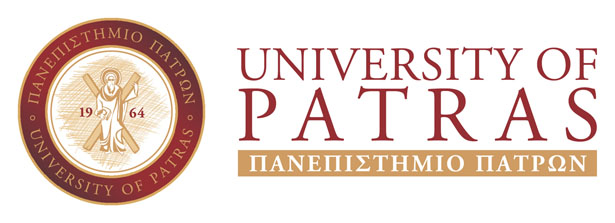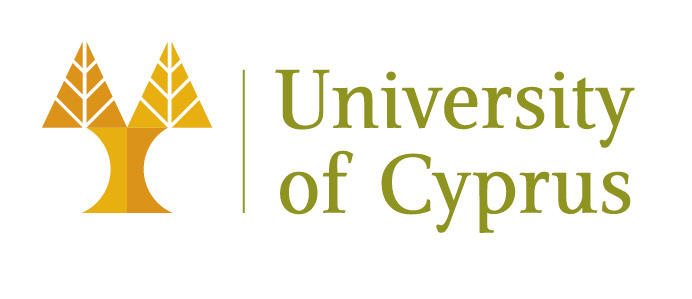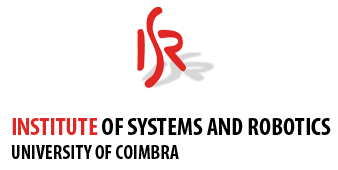TRUSTID - Intelligent Student Identity Management
Motivation
Due to the new COVID-19 pandemic, most EU Higher Education Institutions (HEIs) adopted a fast transition towards a completely online academic, teaching and learning paradigm. However, this transition embraced severe challenges related to deploying trustworthy and credible ICT user identity management solutions. Continuous user identity management refers to an iterative process, throughout a users' session with a remote service, that confirms that the interaction between the user and the system is performed continuously by the same person who has initially logged in, and is therefore eligible to use remote services and computational resources. Unfortunately, nowadays, user identification in most online learning platforms that are distributed among HEIs is compromised only by the user login task. As such, it remains questionable whether the user who logged in, is in reality the one who attends or fulfills the educational activities.
From an academical and pedagogical perspective, being able to verify the student's identity continuously is mandatory within several online learning scenarios, like remote laboratories, exams and lectures, in order to address fraudulent behavior with regards to intentionally pretending someone's identity in order to unethically participate in academic activities. Such uncertainty put into risk the whole mission of HEIs, which is to assure that a certain individual has gained knowledge and competencies in order to acquire a profession. From another perspective, continuous student identification does not only improve credibility and trustworthiness of remote learning systems, but can also serve as a student presence awareness tool. Being able to perceive in a credible way who is attending in remote synchronous and asynchronous scenarios scaffolds and reproduces social situations that occur in the physical classroom like group attendance, presence awareness of classmates.
Vision
In TRUSTID, we envision to design, develop and evaluate a multi-tier continuous user identification framework, bootstrapped to HEIs' contexts that will consist of state-of-the-art intelligent image, voice and interaction data processing. The solution will embrace methods and tools that will be easy to integrate and modify by European HEIs through the provision of specific guidelines to system administrators and GNU open-source policies. The envisioned framework will address the needs of various HEIs stakeholders, such as, academic governance and administration, lecturers and curriculum developers, and national and international educational agencies, such as, national educational board and ministries of education. We also envision that this will be potentially of interest to educational technology providers and HEIs system administrators since the framework itself, along with the developed guides and best practices will provide evidence on how such a technology is used in modern practice.
Objectives
The concrete project objectives are:
- to perform a literature review related to the analysis of current practices and procedures related to student identity management of EU HEIs and triangulate these findings with stakeholders' studies at the participating HEIs, which will drive the implementation of the framework
- to design and develop an integrated framework for student identity management by utilizing privacy-preserving machine learning for face-, voice- and interaction-based continuous user identification techniques
- to validate the solution through a User-Centered Design (UCD) methodology, through the design and execution of three user studies, two formative studies (during the software development process) and one summative (after the final release of the software)
- to create a repository what will support knowledge building, demonstrate the technology through training webinars and best practices and guidelines to various HEIs stakeholders on how to assist the institutional, personal and technological transition towards a more sophisticated online student management solutions and technical integration guidelines (API) to systems administrators
- to inform the target audiences and the stakeholders through a variety of dissemination and exploitation activities, i.e., research paper publications, dissemination events, showcases in HEIs and conferences, multiplier events and learning teaching training activities
Consortium
Project Partners

University of Patras, Patras, Greece - Project Coordinator
University of Patras (UPAT) is a public university in Patras, Greece. It is the third largest university in Greece with respect to the size of the student body, the staff, and the number of departments. The University of Patras is considered one of the best universities in Greece and has been placed in the top 200 universities in subject areas. In 2020, the student population was more than 33.000 (29.901 at the undergraduate level and 3.931 at the postgraduate level). It has 715 faculty members, 226 scientific staff members and 454 administrative personnel and comprises 7 Schools and 35 Departments. UPAT is an Endorser of the “European Charter for Researchers” and "Code of Conduct for the Recruitment of Researchers (Charter & Code)" and host of hundreds of Erasmus Students and Academic Exchange Staff.
Contact: Dr. Christos Fidas (Project Coordinator), fidas@upatras.gr
Web: http://www.upatras.gr/en

University of Cyprus, Nicosia, Cyprus - Project Partner
University of Cyprus (UCY), established in 1989, is the main research organization in the Republic of Cyprus. UCY is ranked within the top 100 universities under 50 years old world wide according to the Times Higher Education Rankings. The Department of Computer Science at UCY has more than 30 staff members and is active in research, technology, creativity and teaching. The department is involved with the development of ICT-enabled Creativity and Enhanced Learning Environments, platforms and collaboration tools for health monitoring and support services. To date, the department has participated in large collaborative R&D efforts for designing, developing and operating high performance computing test beds. It has been actively participating in a number of EU and National funded projects in various service domains.
Contact: Prof. Andreas Pitsillides, andreas.pitsillides@ucy.ac.cy
Web: https://www.ucy.ac.cy/en

Institute of Systems and Robotics - University of Coimbra, Coimbra, Portugal - Project Partner
The Institute of Systems and Robotics (ISR) is a private non-profit research unit, founded in 1992, integrated in the University of Coimbra (UC), rated "Excellent" by the Portuguese science regulating and funding organization (Foundation for Science and Technology, FCT), being the only Electrical and Computer Engineering unit (among a total of 25 nationwide) to receive such distinction. The Institute of Systems and Robotics of the University of Coimbra (ISR-UC) promotes advanced multidisciplinary R&D in the areas Medical Robotics, Assistive Technologies, Soft MEMS, Biomedical Engineering, Autonomous Robotics, Intelligent Transportation Systems, Computer Vision, Advanced Industrial Automation Technologies and Intelligent Energy Systems. ISR is a Center of Excellence in several important areas of science and technology developing strong links with industry, and promoting the creation of successful spin-offs, having won two H2020 SME Awards in 2016 and another in 2017.
Contact: Dr. David Portugal, davidbsp@isr.uc.pt
Web: https://www.isr.uc.pt

Cognitive UX GmbH, Heidelberg, Germany - Project Partner
Cognitive UX GmbH is an IT company aiming to develop AI-driven and human-centered cybersecurity and privacy systems. The Cognitive UX key team members have complementary expertise spanning the spectrum of business, academia, technology and research. The company's mission, as proven by the strong research and development track of the company, is to apply state-of-the-art and innovative developments in the domain of Cybersecurity for building and deploying products and services. The core team members have strong experience in implementing EU and National research projects (H2020, FP7, AAL), including awards of excellence (H2020 Seal of Excellence).
Contact: Dr. Mario Belk, belk@cognitiveux.com
Web: https://cognitiveux.com




